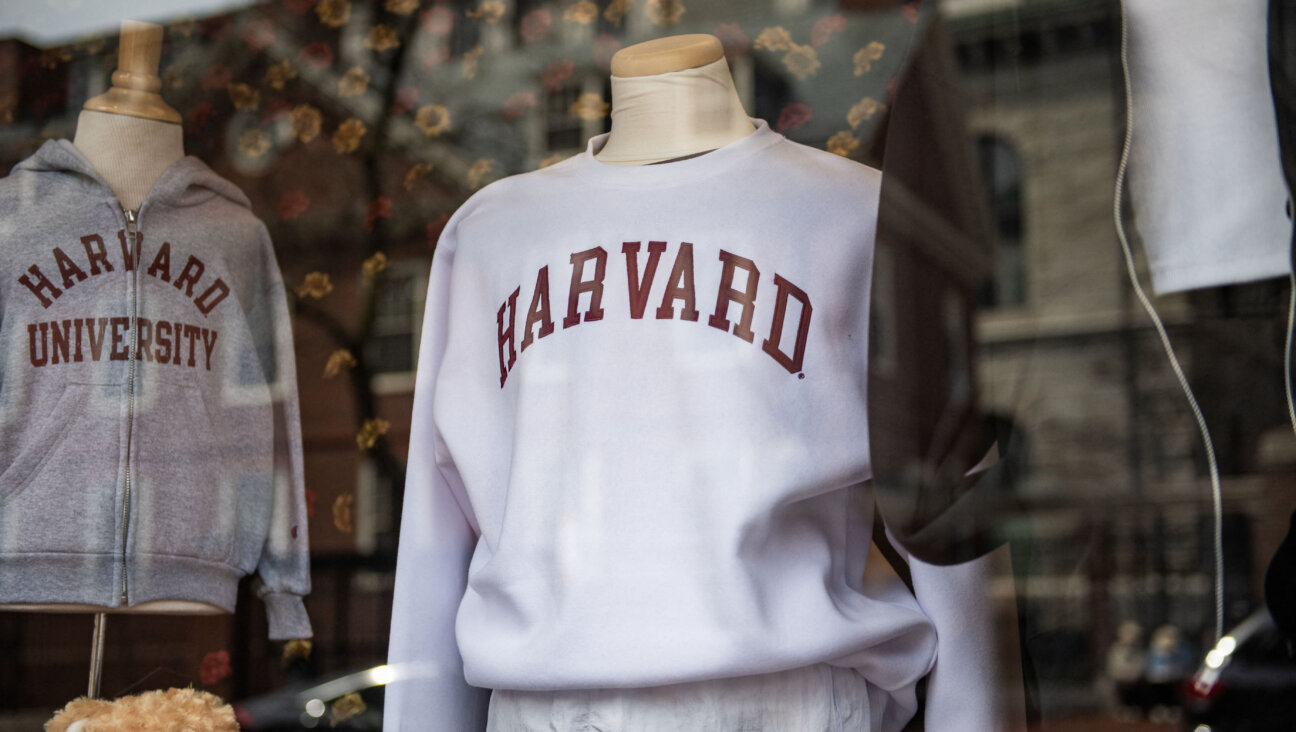Visiting Again With the Divine Fannie Hurst
The Stories of Fannie Hurst
Edited by Susan Koppelman
The Feminist Press at CUNY (The Helen Rose Scheuer Jewish Women’s Series), 349 pages, $16.95.
* * *|
We Jews are spielers. We have Malamud, Singer, Paley, Roth to show for it. And we also have Anzia Yzierska, Edna Ferber, Mike Gold and Fannie Hurst. If the second group is not as gifted as the former, what of it? Paintings of New York by Sloan, Shinn, Glackens and Sawyer are not considered the equal of Monet, Pissarro, or Degas either, but they are satisfying nonetheless.
Now, after more than a 50-year eclipse, we have the opportunity to read Hurst anew, in a collection of her stories recently published by The Feminist Press. Hurst (1885-1968) was prolific, immensely popular and made a fortune from her work. She left half the money to Brandeis University when she died. She was politically active — in addition to supporting workers’ rights, reproductive rights and world peace, she was also a close friend of Eleanor Roosevelt — but she was famous for her stories, novels, plays and essays. Cosmopolitan and The Saturday Evening Post published and advertised her upcoming new stories on the sides of buses. Twenty-nine films were made from her novels and short stories, most notably “Humoresque” (1920, 1946) and “Imitation of Life” (1934, 1959).
The stories are reminiscent of Yezierska, but also of Paule Marshall (“Brown Girls, Brownstones”) and Amy Tan (“The Joy Luck Club”): tales of immigrants in America, what they keep of the past, what they lose, what they gain. Amos Oz’s magnificent memoir, “A Tale of Love and Darkness,” also comes to mind. Oz’s mother was part of a whole generation of Eastern European Zionists who immigrated to Israel, only to find that they are stranded in a country they don’t like. It’s too hot. Where can you buy good cake? Where are the cafés with great writers and excellent coffee? The answer? Of course: back in Europe, where they are reviled and soon to be slaughtered. Hurst’s characters are dislodged and frantic, too.
Hurst’s fortes were place and language and the New York-Jewish milieu of the early 20th century. A proud and nervous mother tells a neighbor on the porch of a hotel, “My Bella’s had chances — not one, but six. You can ask anybody… the chances that goil has had.” A son announces to his parents that they have to change their last name. His mother gapes at him, “I don’t understand!… my son comes home and announces to me and his papa, like it was so much weather, that we ain’t named Goldfish any more.” A mama cries out to a papa, “He wanted a violin! It’s come, Abrahm! The dream of all my life — my prayers — it’s come!… Why, darlink, mamma’ll sell her clothes off her back to get you a violin.’” And she had an uncommonly sharp ear and an eye for local color: Dance halls, suppers in tenement rooms, the rush of shoppers toward sales tables, working girls two to three to a bed in airless attic rooms.
Hurst’s writing was about doing good, changing the social landscape and power relations between the working poor and their bosses, men and women, rich Jews and poor. Her writing was less dense and layered with both Jewish and individual history than the writing of Oz or Roth or Malamud, and her stories will likely seem less anguish-ridden to today’s readers. But the anguish is there. We only feel it less. Perhaps she writes too much like a journalist, too driven by narrative, too reliant on overworking adjectives. Nonetheless her prose and her stories take us into a charged piece of the past, and the journey is illuminating and worth the trip.
Eunice Lipton, author of “Alias Olympia: A Woman’s Search for Manet’s Notorious Model and Her Own Desire”(Cornell University Press, 1999), lives in Paris and New York and has written for The Guardian (U.K.), The New York Times, The Nation and Tikkun.
The Forward is free to read, but it isn’t free to produce

I hope you appreciated this article. Before you go, I’d like to ask you to please support the Forward.
Now more than ever, American Jews need independent news they can trust, with reporting driven by truth, not ideology. We serve you, not any ideological agenda.
At a time when other newsrooms are closing or cutting back, the Forward has removed its paywall and invested additional resources to report on the ground from Israel and around the U.S. on the impact of the war, rising antisemitism and polarized discourse.
This is a great time to support independent Jewish journalism you rely on. Make a gift today!
— Rachel Fishman Feddersen, Publisher and CEO
Support our mission to tell the Jewish story fully and fairly.
Most Popular
- 1

Opinion The dangerous Nazi legend behind Trump’s ruthless grab for power
- 2

News Who is Alan Garber, the Jewish Harvard president who stood up to Trump over antisemitism?
- 3

News Student protesters being deported are not ‘martyrs and heroes,’ says former antisemitism envoy
- 4

Opinion What Jewish university presidents say: Trump is exploiting campus antisemitism, not fighting it
In Case You Missed It
-

Fast Forward After outcry, Cornell president cancels pro-Palestinian performer chosen for campus concert
-

Yiddish טשיקאַוועסן: הינטל וואָס איז פֿאַרשוווּנדן דעם 7טן אָקט׳ פֿאַראייניקט מיט זײַן ישׂראלישער משפּחהTidbits: Dog that disappeared on Oct. 7 is back with its Israeli family
אַ צה״ל־סאָלדאַט האָט געפֿונען דאָס הינטל, בילי, אין ראַפֿאַך, דרום־עזה, בערך נײַן מײַל פֿונעם קיבוץ.
-

Opinion As Trump lashes out at Zelenskyy, it’s clear: Ukraine is now to the far-right what Israel is to the left
-

Fast Forward Sharon Osbourne calls for music group to lose US visas after anti-Israel Coachella performance
-
Shop the Forward Store
100% of profits support our journalism
Republish This Story
Please read before republishing
We’re happy to make this story available to republish for free, unless it originated with JTA, Haaretz or another publication (as indicated on the article) and as long as you follow our guidelines.
You must comply with the following:
- Credit the Forward
- Retain our pixel
- Preserve our canonical link in Google search
- Add a noindex tag in Google search
See our full guidelines for more information, and this guide for detail about canonical URLs.
To republish, copy the HTML by clicking on the yellow button to the right; it includes our tracking pixel, all paragraph styles and hyperlinks, the author byline and credit to the Forward. It does not include images; to avoid copyright violations, you must add them manually, following our guidelines. Please email us at [email protected], subject line “republish,” with any questions or to let us know what stories you’re picking up.















